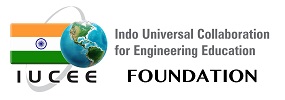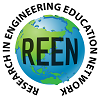Research in Engineering Education Symposium
4 – 6 January, 2024 – KLE Technological University, Hubballi, Karnataka, India
The Research in Engineering Education Network (REEN) along with the Indo-Universal Collaboration for Engineering Education (IUCEE) and KLE Technological University are happy to announce that the Research in Engineering Education Symposium, REES 2024 will be held on January 4th, 5th and 6th, at KLE Technological University, Hubli, Karnataka, India. The conference will be held in face-to-face mode only.
The emergence of India as an important player in the global scenario and the implementation of the National Education Policy in India make it apt to choose the theme of REES 2024 as “Connecting Research-Policy-Practice for Transforming Engineering Education”. The conference aspires to galvanise the efforts of leaders, academia, researchers, practitioners, and policy, regulatory and monitoring agencies in engineering education to contribute to and nurture the engineering education research ecosystem.
Key Dates: Papers
Key Dates: Workshops
Conference Theme
“Connecting Research-Policy-Practice for Transforming Engineering Education”
We invite faculty, academic leaders, strategists, policymakers, and researchers in engineering education to present evidence grounded in theory and practice that can potentially influence policy at the institutional, regional and national levels to lay the foundation for the recognition, stimulus and growth of engineering education.
Authors are invited to indicate one of three sub-themes in their submissions. The sub-themes are related and not mutually exclusive. Therefore, we request that authors select a theme based on the findings, implications, and recommendations of their manuscripts. We also look forward to receiving evidence-based case studies demonstrating the synthesis of research, policy and practice in engineering education, which also address issues of diversity, equity, and inclusion.
Sub-theme 1: Research
1. Engineering education problems that require inquiry through research
2. Engaging engineering faculty in educational research
3. Capacity building models for engineering education research in relevant contexts
4. Pathways to transition from traditional engineering to engineering education research
5. Engineering education research leading to the development of theories and frameworks
6. Global quality benchmarks for engineering education research
Sub-theme 2: Policy
1. Recognition of engineering education research as a viable scholarly field of inquiry at institutional and national levels
2. Identify and overcome barriers that discourage engineering education research
3. Incentives and support systems to engage engineering faculty in engineering education research
4. Funding engineering education research
5. Creating engineering education ecosystems: Moving from regulator mindset to enabler mindset
Sub-theme 3: Practice
1. Impact evaluation of engineering education research on practice
2. Effective models of disseminating engineering education research to practice
3. Designing rigorous, inclusive and sustainable learning environments for engineering faculty and students
4. Transnational education and policy
5. Scholarship of teaching and learning
Submission of abstracts:
Authors are invited to submit abstracts for research articles as per the following template: REES2024_Abstract Template.. The review process will be double-blind and the criteria for review are available at the end of this document. Please take a look at the key dates for timelines and further process.
Submission portal:
Authors must follow the templates available on the conference website. All submissions are made at https://easychair.org/conferences/?conf=rees2024
Conference proceedings and indexing information:
Accepted papers and workshops will be presented/facilitated at the conference by registered participants. The conference proceedings will be Scopus indexed and available at Proceedings.com. Refer https://www.proceedings.com/search-result/?search_query=REES for the proceedings of 2021.
Review criteria for abstracts:
| Criterion | For Review of Research Papers |
| 1. Focus of the Paper | The paper clearly describes the research question OR hypothesis and explains the implications of the project to research, policy and/or practice. |
| 2. Relevance | The paper relates the work undertaken to relevant discussions in the literature and other disciplinary literature as required and describes its contribution to these discussions. |
| 3. Approach | The paper clearly describes and justifies the appropriateness of the overall approach, which could include designs, methods, theories and analytic processes, and discusses the study’s limitations. |
| 4. Argument | The paper presents novel ideas or results of significance to others that are supported by convincing evidence and reasoning, illustrating the connection between claims and evidence. |
| 5. Writing Quality | The paper is written in the English language of a sufficient standard to enable the reader to make sense of it. |
Submission of full papers:
Authors are invited to submit full papers for research articles as per the following template: REES2024_Full_Paper_Template.
Please note that submitting a full paper does not guarantee that the manuscript will be accepted for REES-2024; the full-paper review process will follow a double-blind review policy and have the same criteria and decision options as in the abstract review process. Non-adherence to the template will lead to rejection. Please take a look at the key dates for timelines and further process. Wishing you the best!
All submissions are made at
https://easychair.org/conferences/?conf=rees2024
The conference’s overarching theme is Connecting Research-Policy-Practice for Transforming Engineering Education. We invite faculty, academic leaders, strategists, policymakers, and researchers in engineering education to submit their proposals for workshops by referring to the broad themes indicated below:
Broad themes for Workshops (not restricted to, but broadly connecting to)
- Transitioning from engineering research to engineering education research
- Creating a university-wide culture for scholarly and systematic innovation in engineering education
- How to conduct systematic evaluations of curricular changes?
- Reporting evaluation and research studies in engineering education research
- Capacity building in reviewing engineering education research publications
- Systematic Mentoring for enabling innovations in engineering education
Proposals for Workshops:
Workshops will be held face-to-face at KLE Tech for a duration of 90 minutes. Workshop proposers may nominate their preference for their topic by using the template at REES2024_Workshop_Proposal Template.
- Name of the resource person for correspondence:
- Email ID for correspondence:
- Affiliation of the resource person (corresponding):
- Country of the resource person (corresponding):
- Workshop Title:
- Workshop theme:
In case your proposal touches upon more than one theme, please include the most applicable.
- Transitioning from engineering research to engineering education research
- Creating a university-wide culture for scholarly and systematic innovation in engineering education
- How to conduct systematic evaluations of curricular changes?
- Reporting evaluation and research studies in engineering education research
- Capacity building in reviewing engineering education research publications
- Systematic Mentoring for enabling innovations in engineering education
Sponsors
Institutional Sponsors
Patron
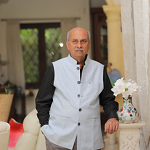
Dr. Prabhakar Kore
Chairman, KLE Society, Belagavi
Chancellor, KLE Technological University, Hubballi
Conference General Chairs
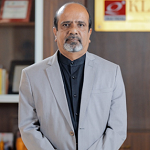
Dr. Ashok Shettar
Vice Chancellor, KLE Technological University, Hubballi
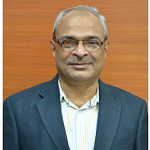
Dr. Gopal Krishna Joshi
Vice Chancellor, MIT Vishwaprayag University, Solapur (India)
Organising Committee
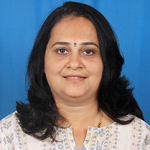
Dr. Vijayalakshmi M
Chair, Organizing Committee
Professor & Head, School of Computer Science and Engineering
KLE Technological University Vidyanagar Hubballi, India
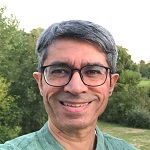
Dr. Sohum Ashok Sohoni
Co-Chair, Organizing Committee
Professor and Program Director Software Engineering Milwaukee School of Engineering Milwaukee, Wisconsin, USA
Technical Committee
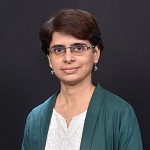
Dr Preethi Baligar
Chair, Technical Committee
Centre for Engineering Education Research, KLE Technological University, BVB Campus, Hubballi, Karnataka, India
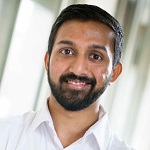
Dr. Rohit Kandakatla
Co-Chair, Technical Committee
Director – KG Reddy College of Engineering and Technology, India
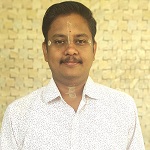
Mr. Kaushik Mallibhat
Member Secretary, Technical Committee, KLE Technological University, BVB Campus, Hubballi, Karnataka, India
Members (In alphabetical order of first name)
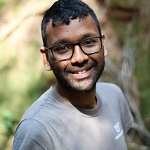
Dr. Ashish Agrawal
Assistant Professor, College of Engineering Technology, Rochester Institute of Technology, NY, USA.
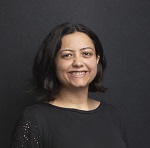
Dr.Avneet Hira
Boston College, United States of America
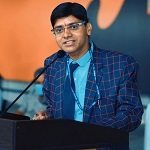
Dr Buddha Chandrashekhar
Chief Coordinating Officer, AICTE, Ministry of Education, Government of India
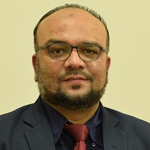
Prof. Faris Tarlochan
Qatar University, Qatar
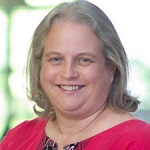
Dr. Helen Inglis
University of Pretoria, South Africa
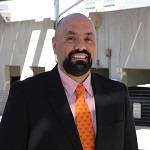
Dr. Homero Murzi
Virginia Tech, United States of America
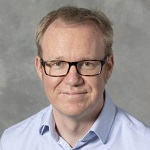
Prof. John Mitchell
Centre for Engineering Education, University College London,
United Kingdom
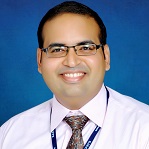
Mr. Keith Raymond Fernandes
St Joseph Engineering College, Mangaluru, Karnataka, India
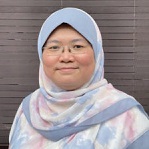
Dr. Mitra Mohd Addi
Universiti Teknologi Malaysia, Malaysia
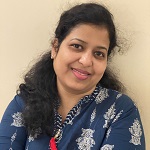
Dr. Preeti Basavaraj Patil
Centre for Engineering Education Research
KLE Technological University, Hubballi, India
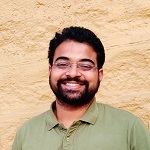
Dr. Prithvi Sekhar Pagala
Specialist, Global Engineering Academy
L&T Technology Services Limited, Bengaluru, India
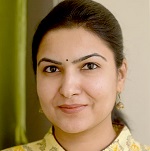
Dr. Rajlaxmi Chouhan
Assistant Professor, Department of Electrical Engineering
Indian Institute of Technology Jodhpur, India
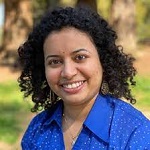
Dr. Rucha V. Joshi
Faculty, Plaksha University, Mohali, Punjab, India
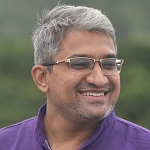
Mr. Sanjeev M Kavale
Arizona State University, United States of America
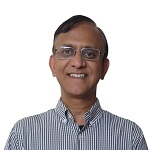
Prof. Sivakumar Krishnan
Director, Learning and Innovation Vishnu Educational Development and Innovation Centre (VEDIC), Sri Vishnu Educational Society, Hyderabad, India
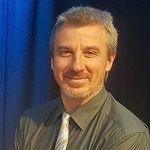
Dr. Scott Daniel
University of Technology Sydney, Australia
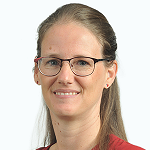
Dr. Teresa Hattingh
University of Johannesburg, South Africa
Travel and Accommodation Support
Schedule
| Time | Session Type | Session Name | Name of Speaker | Session Venue | ||
|---|---|---|---|---|---|---|
| 4th January 2024 | ||||||
| 8.00 – 9.30 | REES 2024 Registration | KLE Tech Auditorium | ||||
| 9:30 – 11:30 | ICTIEE Workshop | The Science and Art of Engaging Students | Dr. Sivakumar Krishnan, Vishnu Educational Development and Innovation Centre (VEDIC) | ARC 204 | ||
| ICTIEE Workshop | The ideal classroom | Dr. Teresa Hattingh Associate Professor and Engineering Education Specialist, University of Johannesburg Dr. Helen Inglis Senior Lecturer, University of Pretoria |
ARC 205 | |||
| ICTIEE Workshop | Students participation in quality assurance- A qualitative approach to course evaluation | Dr. Preethi Baligar Director, Centre for Engineering Education Research Sanjeev M. Kavale Graduate Research Assistant, Arizona State University Kaushik M Assistant Professor, School of Electronics and Communication Engineering, KLE Technological University, Hubballi |
ARC 208 | |||
| ICTIEE Workshop | Use of Generative AI in Engineering Education | Dr. Mohan Rao, Tennessee Tech University Dr Raju Dandu, Kansas State University Dr. Kumar Yelamarthi, Texas Tech University |
Lab 1, SoCSE, CLITE | |||
| REES Workshop | Finding and developing true personal stories in engineering | Dr. Krishna Pakala , Dr. Anne Hamby, Dr. Eric Jankowski and Dr. Sara Hagenah Associate Professors, Boise State University |
ARC 209 | |||
| REES Workshop | Methodological Requirements for Engineering Education | Dr. Johannes Strobel – Associate Dean, University of Texas at El Paso Dr. Maartje van den Bogaard, Associate Professor, University of Texas at El Paso |
ARC 110 AV room | |||
| ICTIEE | INTLC Session | Panel Discusson with KLETU Innovative Educators & IASF Mentors | ARC 104 | |||
| 11.30 to 12.00 | ICTIEE sponsor workshop | Xavier Fouger, Dassault Systemes | KLE Tech Auditorium | |||
| 12:00 – 13:30 | IUCEE Awards and Recognition and ICTIEE Valedictory | KLE Tech Auditorium | ||||
| 13:30 – 14:30 | Lunch Break | |||||
| 14:30 – 16:30 | REES Workshop | Writing an engineering education research paper | Dr. Teresa Hattingh – Associate Professor and Engineering Education Specialist, University of Johannesburg Dr. Helen Inglis – Senior Lecturer, University of Pretoria Dr. Sohum Sohoni – Professor and Program Director Software Engineering Milwaukee School of Engineering Milwaukee, Wisconsin, USA Dr. Pratibha Nagabhushan – Australian Catholic University |
ARC 204 | ||
| REES Workshop | Optimizing Engineering Student Learning Outcomes: Proficiency Alignment with Assessment Questions Difficulty Index | Dr. Rashpinder Kaur – Assistant Professor, Chitkara University | ARC 205 | |||
| REES Workshop | Applying for Research Grants and Fellowships | Dr. Shannon Chance – Lecturer & Program Chair, Technological University Dublin | ARC 208 | |||
| ICTIEE Workshop | Empowering Engineering Faculty with Generative AI | Dr. Neeraj Goel IIT Ropar Dr. Viraj Kumar Professor, Kotak IISc AI-ML Centre. |
Lab 1, SoCSE, CLITE | |||
| ICTIEE Workshop | Evaluation of Curriculum Revision – Model KJSCE | Dr. Rachana Desai and Dr. Suren Patwardhan K J Somaiya College of Engineering, Somaiya Vidyavihar University |
ARC 110 AV room | |||
| 15.00 – 16.30 | IUCEE Annual Student Forum (IASF) Valedictory | KLE Tech Auditorium | ||||
| 16:30 – 17:00 | Break | |||||
| 17:00 – 18:00 | REES 2024 Inaugration | KLE Tech Auditorium | ||||
| 18:00 – 18:30 | Inaugral Keynote Theme – Future of Engineering Education in the world of Artificial Intelligence | Dr Viraj Kumar Professor, Kotak IISc AI-ML Centre. |
KLE Tech Auditorium | |||
| 18.30- 19.30 | Transit to Banquet dinner venue Fortune Park, Airport Road, Hubballi | |||||
| 19:30 – 21:30 | Banquet Dinner | |||||
| Time | Session Type | Session Name | Name of Speaker | Session Venue | ||
| 5th January 2024 | ||||||
| 9:30 – 10:00 | Keynote 1 | Theme – Evolution of Engineering Education Research as a recognized field of inquiry across the globe | Dr. Teresa Hattingh – Associate Professor and Engineering Education Specialist, University of Johannesburg | KLE Tech Auditorium | ||
| 10:00 – 11:00 | Panel Discussion 1 | Theme – Building community of Engineering Education Research at regional, national, and international level | Panel Members: Dr. Gopalkrishna Joshi – Founding Vice-Chancellor, Vishwaprayag University, Solapur Dr. Sohum Sohoni – Professor and Program Director of Software Engineering, Milwaukee School of Engineering Dr. Helen Inglis, Senior Lecturer, University of Pretoria Spandhana Gonuguntla – Senior Customer Success Engineer, Mathworks Moderator Mr. Sanjeev Kavale – Graduate Research Assistant, Arizona State University |
KLE Tech Auditorium | ||
| 11:00 – 11:30 | Break | |||||
| 11:30 – 13:00 | Parallel Paper Session | Paper Session 1 | ARC 204 | |||
| Parallel Paper Session | Paper Session 2 | ARC 205 | ||||
| Parallel Paper Session | Paper Session 3 | ARC 208 | ||||
| Parallel Paper Session | Paper Session 4 | ARC 209 | ||||
| 13:00 – 14:00 | Lunch Break | |||||
| 14:00 – 14:30 | Keynote 2 | Theme – Methodological Requirements for Engineering Education Research | Dr. Johannes Strobel – Associate Dean of Research & Graduate Studies, University of Texas at El Paso | KLE Tech Auditorium | ||
| 14:30 – 15:30 | Panel Discussion 2 | Theme – Transitioning from engineering to engineering education research | Panel Members: Dr. Rucha Joshi – Assistant Professor, Plaksha University Prof. William Oakes – Director of EPICS, Purdue University Dr. Shannon Chance – Honarary Professor at Center for Engineering Education, University College London Dr. Siva Krishnan – Director for Learning and Innovation, Vishnu Educational Development and Innovation Centre (VEDIC) Moderator Mr. Kaushik Mallibhat – Assistant Professor, KLE Technological University |
KLE Tech Auditorium | ||
| 15:30 – 16:00 | Break | |||||
| 16:00 – 18.00 | Parallel Workshop | Failing Up: Opportunities for Growth in Inter-institutional Collaborations | Dr. Jessica Rush Leeker – Professor, University of Colorado Boulder Dr. Laura MacDonald – Managing Director of Mortenson Center in Global Engineering, University of Colorado Boulder Lyndsay Ruane, PhD Student, University of Colorado Boulder. |
ARC 204 | ||
| Parallel Workshop | Leveraging Mobile Devices to Improve Learning of Engineering Thermal Fluids: Ways to Measure the Impact | Dr. Krishna Pakala – Associate Professor, Boise State University Dr. Devshikha Bose – Senior Educational Development Specialist, Boise State University Dr. Diana Bairaktarova – Associate Professor, Virginia Polytechnic Institute and State University |
ARC 208 | |||
| 18.00 – 19.00 | Visit to KLE Tech Science and Technology Advanced Research(STAR) Labs and Centre for Technology Innovation and Entreprenuership(CTiE) by IUCEE Consortium College Leaders – Lead by Prof Ashok Shettar – VC , KLE Tech- begins from KLE Tech Auditorium front yard | |||||
| 19:00 – 22:00 | Networking Dinner – KLE Tech university Campus | |||||
| Time | Session Type | Session Name | Name of Speaker | Session Venue | ||
| 6th January 2024 | ||||||
| 9:30 – 11:00 | Plenary Session | Theme – Impactful Research: Curricula, Practices, and Shaping Policies | Speakers: Dr. Ashok Shettar – Vice-Chancellor, KLE Technological University Prof. Edward Berger – Interim Head for School of Engineering Education, Purdue University Dr. Xiangyun Du – Director, UNESCO Center for PBL at Aalborg University |
KLE Tech Auditorium | ||
| 11:00 – 11:30 | Break | |||||
| 11:30 – 13:00 | Parallel Paper Session | Paper Session 5 | ARC 204 | |||
| Parallel Paper Session | Paper Session 6 | ARC 205 | ||||
| Parallel Paper Session | Paper Session 7 | ARC 208 | ||||
| Parallel Paper Session | Paper Session 8 | ARC 209 | ||||
| 13:00 – 14:00 | Lunch Break | |||||
| 14:00 – 14:30 | Keynote 3 | Theme – Emerging and Future Trends in Engineering Education Research | Dr. Aditya Johri, Professor of Information Sciences & Technology at George Mason University | KLE Tech Auditorium | ||
| 14:30 – 15:30 | Panel Discussion 3 | Enablers and Barriers to promote Engineering Education Research | Panel Members: Dr. Adam R Carberry, Head for Department of Engineering Education, Ohio State University Dr. Rohit Kandakatla – Director, KG Reddy College of Engineering and Technology Dr. Preethi Baligar, Director at Center for Engineering Education Research, KLE Technological University Moderator Dr. Sohum Sohoni Professor and Program Director of Software Engineering, Milwaukee School of Engineering |
KLE Tech Auditorium | ||
| 15:30 – 17:00 | REES 2024 Valedictory | KLE Tech Auditorium | ||||
Registration
Registration Deadlines
Early Bird Registration
Delegates Registration Deadline: 10th Dec 2023
Regular Registration
Authors Registration Deadline: 20th Dec 2023
Delegates Registration Deadline: 20th Dec 2023
Note
- For each accepted paper, at least one of the authors must register for the conference and present the paper during the conference. Only then, the paper will be included in the conference proceedings.
- A registered author can present maximum of three papers with single registration provided he/she is the author of the other papers as well.
- The conference will be held in face-to-face mode only.
- +18% GST (Goods and Services Tax, as per the Government of India’s regulations) charges will be applicable on the above registration fees.
- Online payment through net banking and Cards includes a processing charge of up to 5%.
Conference Hosts
The vision of Indo-Universal Collaboration for Engineering Education (IUCEE) is to improve the quality and global relevance of engineering education in India. Its mission is to build an ecosystem for transforming engineering education in India with the assistance of engineering education experts and industry from around the world. IUCEE operates through two formal organizations: IUCEE Foundation, a Section 8 Company in India and IUCEE INC, a 501c3 Company in the US. IUCEE is guided by a team of Indian and international experts from academia and industry. They are passionate about the mission of IUCEE and devote time and energy by offering courses and workshops, facilitating collaborations, organizing and speaking at events, mentoring faculty, students and leadership of colleges. A fundamental strength of IUCEE is its network of engineering educators from around the world who are passionate about the quality of engineering education. It also has ties with global organizations such as—International Federation of Engineering Education Societies (IFEES), Global Engineering Deans Council (GEDC), American Society for Engineering Education (ASEE), Accreditation Board for Engineering and Technology (ABET), International Society for Engineering Pedagogy (IGIP), Engineering Projects in Community Service (EPICS).
KLE Technological University (KLE Tech) has its roots in one of the premier engineering institutions of Karnataka, B. V. Bhoomaraddi College of Engineering and Technology (BVB), a prestigious engineering college in Hubli. The founding organization KLE Society, Belgaum, established BVB college in 1947 with an aspiration of creating an institution that would lay the foundation of modern engineering education in the northern region of Karnataka. Over the years, it evolved to reach and hold a unique position of pride in the technical education system of India. As we stepped into the 21st century, the college undertook a comprehensive reform process to adapt to the challenging global engineering education scenario. In pursuit of academic excellence, the college attained academic autonomy from University Grant Commission (UGC) in the year 2007. As an autonomous college, BVB established its distinctive character in the academic space through its curriculum and outstanding student experience. In 2014 the college was recognized as a state private University by the Government of Karnataka. The rich heritage of BVB College as one of the best engineering colleges in Hubli combined with brand equity of KLE Society are the starting points for KLE Technological University to emerge as a University with a national distinction. Over the time it gained tremendous credibility with the industries and employers and emerged as a brand to reckon with. The Alumni of the Institute have done exceedingly well in all spheres of life at both national and international levels and brought name and fame for themselves as well as to their Alma Mater.
The Research in Engineering Education Network (REEN) is a community of scholars interested in conducting high-quality work in and advancing the field of Engineering Education Research. REEN differs from other networks and communities of engineering educators in its primary focus on research in Engineering Education around the world. The mission of REEN is to provide an independent, international and inclusive forum to advance scholarly discourse on research in Engineering Education. REEN’s vision is to establish and maintain an independent, international, vibrant and inclusive community that supports, discusses and disseminates scholarly research on Engineering Education. The community is intended to nurture new and veteran researchers through collaboration and sound methodological approaches to influence policy at all levels and teaching practices around the globe.
